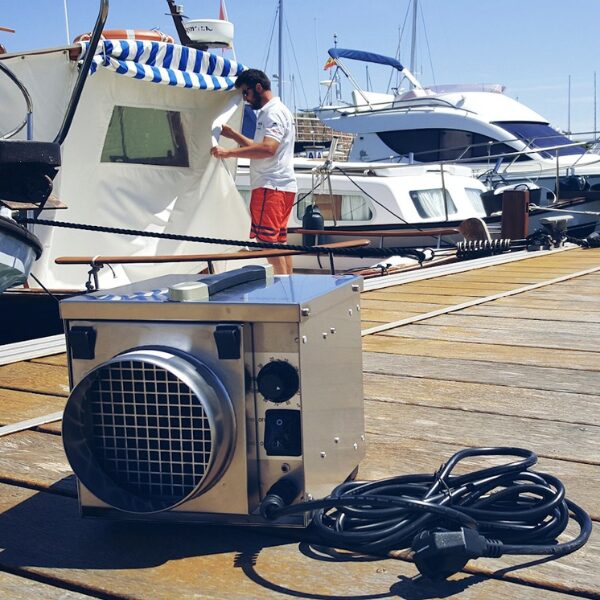
Should I Use a Dehumidifier For My Boat?
Should I Use a Dehumidifier For My Boat?
By: Brothers Equipment And Supply
As a boat owner, you invest a significant amount of time and money into your vessel. However, one often-overlooked aspect of boat maintenance is humidity control.
Excess humidity can lead to a host of problems, including mold, mildew, and corrosion, which can threaten the longevity and comfort of your boat. This is where dehumidifiers come into play.
In this article, we will explore whether you should consider using a dehumidifier for your boat, the benefits of doing so, and the different types available to you.
Let’s get right into it!
Understanding Humidity On Boats
The Impact Of Humidity
Humidity is the amount of moisture present in the air. On boats, especially in Canada where the climate can vary greatly, humidity levels can fluctuate significantly, leading to serious issues.
High humidity can create an environment ripe for mold and mildew, which not only damages the aesthetics of your boat but also poses health risks.
Furthermore, excessive moisture can damage wood and fabric materials, leading to costly repairs and replacements. Metal components can corrode, jeopardizing both the safety and functionality of your vessel.
Signs Of High Humidity On Your Boat
Recognizing the signs of high humidity is crucial for effective maintenance. Common indicators include:
- Musty Odours: A damp smell is often the first sign that your boat is suffering from excess moisture.
- Dampness in Fabrics and Wood: If cushions, upholstery, or wooden surfaces feel damp, it’s time to take action.
- Visible Mould or Mildew: The presence of these unsightly fungi is a clear indicator that humidity levels are too high.
If you notice any of these signs, it may be time to consider a dehumidifier.
Benefits Of Using A Dehumidifier For Your Boat
Protecting Your Investment
One of the most compelling reasons to use a dehumidifier is to protect your investment. The cost of repairing mold damage or replacing corroded metal parts can quickly add up. By managing humidity levels, a dehumidifier helps extend the lifespan of your boat’s materials, ensuring you get the most out of your investment.
Improving Air Quality
A dehumidifier not only helps protect your boat but also improves the air quality inside. High humidity can lead to the proliferation of allergens and irritants, making your boating experience less enjoyable and potentially harmful. By reducing humidity, you create a healthier environment for you and your passengers.
Easier Maintenance
Maintaining a boat can be a demanding task, but using a dehumidifier can simplify your upkeep. With reduced humidity, you will spend less time cleaning and less money on emergency repairs. This allows you to enjoy your time on the water without the constant worry of maintenance.
Types Of Dehumidifiers
Portable vs. Built-in Dehumidifiers
When considering a dehumidifier, you have two main options: portable and built-in units.
Portable Dehumidifiers are generally more versatile and can be moved around your boat as needed. They are ideal for smaller spaces or for temporary use. However, they often require manual operation and may need to be emptied frequently.
Built-in Dehumidifiers offer a more permanent solution and can be connected to your boat’s existing electrical system. They tend to have larger capacities and can automatically drain, reducing the need for manual intervention. However, installation can be more complex and costly.
Desiccant vs. Refrigerant Dehumidifiers
Dehumidifiers generally fall into two categories: desiccant and refrigerant models.
Desiccant Dehumidifiers work by absorbing moisture through a desiccant material. They are typically quieter and operate effectively in cooler temperatures, making them a good choice for boats in Canada.
Refrigerant Dehumidifiers cool the air to condense moisture, then heat it back up before releasing it. They are usually more efficient in warm, humid conditions but may struggle in cooler environments.
Choosing The Right Dehumidifier For Your Boat
Size And Capacity
Selecting the right size dehumidifier for your boat is crucial for effectiveness. A unit that is too small will not effectively reduce humidity levels, while an oversized unit may cycle on and off too frequently. Consider the size of your boat and calculate the appropriate capacity based on the cubic footage.
Energy Efficiency
Energy efficiency is an important factor, especially if you plan to run the dehumidifier regularly. Look for models with a good Energy Star rating to save on electricity costs without compromising on performance.
Features to Consider
When choosing a dehumidifier, consider the following features:
- Humidity Sensors: These allow the unit to monitor and adjust humidity levels automatically.
- Auto Shut-off Capabilities: Prevents the unit from running unnecessarily once desired humidity levels are reached.
- Noise Levels: Some units can be quite loud, which may affect your comfort while on board.
Best Practices For Using A Dehumidifier On A Boat
Placement And Setup
Proper placement of your dehumidifier is key to its effectiveness. Ideally, it should be situated in an area where airflow is optimal, such as near vents or windows. Avoid placing it in enclosed spaces where air cannot circulate.
Maintenance Tips
Regular maintenance will ensure your dehumidifier operates efficiently. Here are some tips:
- Clean the Filter: Regularly clean or replace the filter to maintain airflow and efficiency.
- Monitor Humidity Levels: Use a hygrometer to keep an eye on humidity levels, adjusting the dehumidifier settings as necessary.
Conclusion
Using a dehumidifier on your boat can significantly enhance your boating experience by protecting your investment, improving air quality, and reducing maintenance efforts.
By understanding the signs of high humidity and the benefits of dehumidification, you can make an informed decision on whether to incorporate a dehumidifier into your boat maintenance routine.
FAQs
1. Do I Really Need a Dehumidifier for My Boat?
If you live in a humid climate or notice signs of excess moisture, a dehumidifier can be very beneficial.
2. Can I Use a Household Dehumidifier on My Boat?
Yes, but make sure it’s suitable for marine environments and can handle the space you have.
3. How Often Should I Run My Dehumidifier?
It depends on humidity levels. Regularly check with a hygrometer and adjust as needed.
4. How Do I Know What Size Dehumidifier to Buy?
Calculate the cubic footage of your boat and choose a unit with a capacity that matches.
5. Are Dehumidifiers Noisy?
Noise levels vary by model. Look for units that advertise quiet operation if noise is a concern.
6. Can I Leave My Dehumidifier Running While I’m Not on the Boat?
Yes, as long as it’s set up properly and monitored for safety.
7. What’s the Difference Between Desiccant and Refrigerant Dehumidifiers?
Desiccant units absorb moisture, while refrigerant units cool the air to condense moisture. Choose based on your climate and needs.
8. How Do I Maintain My Dehumidifier?
Regularly clean the filter, check for clogs, and monitor its performance to ensure efficiency.
9. Can Using a Dehumidifier Help with Allergies?
Yes, reducing humidity can help limit the growth of mold and dust mites, which can alleviate allergy symptoms.
10. What Should I Do if I Notice Mould or Mildew?
Address humidity issues immediately, clean affected areas with appropriate cleaners, and consider using a dehumidifier to prevent recurrence.
If you have any questions about our article, “Should I Use a Dehumidifier For My Boat?” or need boat dehumidifiers, contact us at sales@brothers-equipment.com or connect with us on social media.

